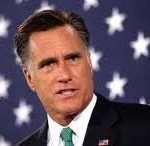
by Steven Waechter | Apr 1, 2013
 To kick off the IWEA conference at HyVee Hall, both the Governor and the Lieutenant Governor took turns at the podium to celebrate Iowa’s commitment to wind power. I was there to take notes and to take a look around.
To kick off the IWEA conference at HyVee Hall, both the Governor and the Lieutenant Governor took turns at the podium to celebrate Iowa’s commitment to wind power. I was there to take notes and to take a look around.
The Governor’s comments were short, citing Iowa’s adoption of wind energy standards, the lease royalty income for landowners, the jobs associated with the wind energy sector, Iowa’s exporting of wind-generated power, and used a comment on the importance of the STEM curriculum (science, technology, engineering, and math) to introduce Lieutenant Governor Kim Reynolds, for whom STEM is something of a pet project.
Knowledge-based Economy
The Lieutenant Governor’s comments centered around education; preparing the young for the jobs of the “knowledge-based economy,†which I put in quotes because she said that exactly, and this happens to be one of the phrases that triggers irritation in your favorite derelict lawyer – turned political dissident.
The idea behind the knowledge-based economy comes from the plan for the post-Cold War America. As the Soviet Union wound down, the plans for a global, integrated economy that were shelved shortly after the Second World War were revisited.
America, which up until then had relied on its overwhelming industrial output for its wealth, decided that the new comparative advantage would be in the “knowledge economy.†Governments, businesses, and foundations associated with education began planning academic curricula for the new economy which they imagined would take effect.
Because Americans would be far too rich from tech stocks and mortgaged houses to bother with the dirty fingernails of manufacturing, those who needed income would have to cater to the needs of the newly wealthy and the best jobs for the new service economy would only be open to the educated.
Thus, we were saddled with an educational model designed for an economy that was to be designed in accordance with political speculations and not real human needs, and the entire thing blew up. NAFTA turned factory workers into store clerks and Mexican subsistence farmers into illegal immigrants, college turned young Americans into Helots, and the jobs of the “knowledge-based economy†have not materialized except inside the government and government-supported industries. (See “Think College is Critical? Bureau of Labor Statistics Projections Suggest Otherwiseâ€)
Public-Private Partnership. Read: State Corporatist Socialism
The final comment by the Lieutenant Governor was a pitch for the public-private project called the Skilled Iowa Initiative. I checked out their website and apparently the entire initiative is to promote the National Career Readiness Certificate.
Brought to you by the people from ACT, it allows you to prove that you can read and add, which you used to be able to prove by graduating from the second grade. Then again, you can’t get “Platinum Certification†from the second grade.
Wind-Industrial Complex
As I walked through the main hall and examined the exhibitor booths, the thing that jumped out at me was just how much of the wind energy industry that really isn’t the wind energy industry.
Construction companies, community colleges, environmental consultants, computer services, and even law firms are in on the act. The IWEA appears to have close relationships with the Nyemaster firm – who had a booth there – as well as the Brown Winick firm – the IWEA website indicates that a couple of their directors are partners at Brown Winick – both of Des Moines.
Hippies often like to cite Dwight Eisenhower in regard to defense spending, particularly his comment that “In the Councils of Government we must guard against the acquisition of unwarranted influence – whether sought or unsought – by the Military-Industrial Complex.â€
If you watch his entire Farewell Address – which is about 15 minutes and available on You tube – you will see that Ike was warning about the situation we have right now; an economy too heavily dominated by the public sector, where government subsidy is substituted for private sector growth, and when private interests grow dependent on certain government programs and thus become vociferous lobbyists for continuing their own line items.
“Weighed in the light of a broader considerationâ€
What have we done, besides building another state-sponsored pressure group? Turning off the tax credits would provoke hostility from the entire structure of energy consultants, lawyers, and lobbyists.
But, then again, who would want to upset the apple cart; these are “industrial jobs†after all, and landowners are earning royalties, and we now export wind-generated electricity (the United States is also the largest exporter of military hardware), so when electric bills go up to cover the installation costs of these turbines ( as reported by the Cedar Rapids Gazette, “Alliant Energy seeks 13.8 percent rate increase,â€) well, that is just progress.

by Steven Waechter | Nov 28, 2012
 The tax credit for wind energy is back on the agenda, and Iowa’s own Chuck Grassley and Terry Branstad are taking leadership roles in fighting for the extension, going so far as to appear together at a press conference about it.
The tax credit for wind energy is back on the agenda, and Iowa’s own Chuck Grassley and Terry Branstad are taking leadership roles in fighting for the extension, going so far as to appear together at a press conference about it.
Wind energy is my favorite target at the moment, because it combines socialist economics, corruption, aesthetic vandalism, junk science, and cynical political machinations – all melting together into a hideous soup of wasted money and ruined skylines.
Tough Love
After the last election, targeting two of Iowa’s best known Republicans for criticism is perhaps a risky business, but for those who think I – with my dislike of leftists – shouldn’t be doing it, I offer the following historical analogy:
In the days of the Roman legions, the centurions were legendary for their swift discipline. One centurion developed a habit of breaking his staff over the backs of soldiers who had acted disobediently. “Give me another,†he would say to his aide when it happened, and it happened so often that “give me another“ became his nickname . In this way, withering cruelty became not a malicious attempt to destroy, but deep concern for long-term wellbeing.
Well, give me another.
Political Venture Capital
Wind energy is an odious political scam. First of all, the industry cannot survive without government subsidy, namely, the tax credits. The wind industry makes profits not from the power grid, but from their tax returns.
It is also ridiculously expensive and underproductive. When Alliant Energy built the Whispering Willows wind farm in Franklin County, they petitioned utilities regulators for a rate hike to help cover the cost. The market had reached a price for electricity, generated by coal, but at that price the wind farm was not economically viable – it wouldn’t produce enough electricity to cover its cost.
They built it anyway. Even though the money in the wind industry is earned on the tax return and not the power grid, they didn’t want to eat an operating loss, so rates have to increase. Consumers in central Iowa found themselves paying more money for the electricity they used – still mostly generated from coal – to pay for a wind farm erected so the utility could earn a tax credit.
The utility sells the power and claims the credits; the landowners earn fees for having these modern art sculptures on their land; the turbines produce just enough electricity to power a massive, metaphorical conveyor belt carrying money from the pockets of poor customers to the rich and the politically-connected… Because that is progress these days.
Grassley stated at the recent news conference that “We have a 20 year investment in this… it would be terrible to throw a way a 20 year investment if it will mature in a short time.â€
We have been waiting for the wind energy industry to mature since the days when pioneer farmers could order a windmill from the Sears and Roebuck catalog. Most of them were dismantled after rural America was electrified. Now, the fantasy is that the same technology that was felled by electricity will be the future of electricity.
Central Dreaming
Nothing becomes outdated faster than a fantasy about the future. This is never more true than when the fantasy has its birth in the minds of politicians; a future brought to you by the same people who bring you inflation, wars, and prisons.
The general public is also rapidly becoming too poor to cover higher utility bills, but wind energy fits into the political rhetoric of our time and so they charge forward. Wind energy doesn’t make power cheaper, reduce our trade deficit, strengthen the dollar, or generate tax revenue – but it can get you elected.  It employs only a handful of people, especially when compared to the coal industry – which politicians have threatened to kill. The turbines themselves are insanely ugly, and provide a far too convenient backdrop for political photo opportunities.
I understand that this is politics. I also object to the fact that this is politics. The experience of subsidized public housing should have been enough to dispel the urge to make fantasy into reality, but it wasn’t. We will all pay the price. Literally.

by | Nov 23, 2012
 Below is a brief overview of a bi-partisan initiative that is set to be brought to the floor of the Iowa Legislature when it gavels in next session. Once it is brought to the floor I will publish a more detailed look at it. As noted on Wednesday, Sen. Brad Zaun, Rep. Ako Abdul-Samad, and Rep. Kevin Koester have already signed on to support the measure and it will be interesting to see the reaction from both sides once the session starts.
Below is a brief overview of a bi-partisan initiative that is set to be brought to the floor of the Iowa Legislature when it gavels in next session. Once it is brought to the floor I will publish a more detailed look at it. As noted on Wednesday, Sen. Brad Zaun, Rep. Ako Abdul-Samad, and Rep. Kevin Koester have already signed on to support the measure and it will be interesting to see the reaction from both sides once the session starts.
———————————————————————————————
The Every Iowan Economic Empowerment Act or The Empowerment Act takes advantage of our state’s strengths in two ways.
I. Rewarding Hard Work & Sacrifice Provision
The first component of The Empowerment Act rewards the hard work and sacrifice of Iowans by eliminating taxation on overtime.
A. If an Iowan works an hourly or hourly jobs, after 40 hours state taxation ends. No hour worked over 40 hours is taxed whether that time is accrued at one job or a second or third job.
B. If an Iowan works a salaried position that consists of at least 40 hours per week as their primary job but works a second job that is either hourly or salaried that secondary employment will not be taxed by the state.
C. In a state with the highest per capita number of two working parent households, this rewards their sacrifice by allowing them as a household to keep more of the money they earn or allows one of the two to work less hours while the household brings home the same size weekly paycheck.
II. Capitalism & Working Class Iowa Empowerment Provision
The second component of The Empowerment Act returns to Iowans the ability to invest in and rebuild their communities while savaging rampant cronyism found in state and local gifting politics.
A. 5% Charitable Provision Each working Iowan gets 5% rebated from their individual state income tax bill and they can designate the non-profit organization or organizations of their choice to receive those funds.
B. 10% Rural Revitalization Provision Each working Iowan gets 10% rebated from their individual state income tax bill and they can designate the rural enterprise or enterprises of their choice to receive those funds.
C. 15% Entrepreneurship & Capitalist Empowerment Provision Each working Iowan gets 15% rebated from their individual state income tax bill and they can invest in any Iowa based business venture.
Implementation
1. Potential recipients for investment sign up as state vendors and provide relevant information such as their EIN, business organization charter, and banking information.
2. At tax refund time the state wires invested funds to the appropriate vendor not the taxpayer.
3. The taxpayer is responsible for vetting the investee and any collaborative efforts.
4. Demonstrable fraud is prosecuted as it would be under our current code.
![Waechter’s Final Pre-Election Weigh In: No Matter How You Vote, the Economy Will Not Improve]()
by Steven Waechter | Oct 29, 2012
 I cast my ballot early. I didn’t vote third-party and therefore my vote isn’t being wasted. It also isn’t going to matter.
I cast my ballot early. I didn’t vote third-party and therefore my vote isn’t being wasted. It also isn’t going to matter.
Since 1990, the United States has run aggregate trade deficits above $8 trillion. This is funny, because in 1990 the M2 metric of currency supply was only $3 trillion. There should be nothing but dust coming out of the ATM machines. We have purchased entire merchant-fleets full of foreign goods, and paid for it by quite literally printing money.
Foreign countries, being more blatant about their currency devaluation policies, have been willing to go along with this arrangement. The result is this dynamic: The US prints dollars to buy goods from China, and the Chinese central bank prints yuan to buy the dollars. We get cheap Chinese stuff, the Chinese central bank gets huge dollar reserves, and the Chinese people get jobs and lots of inflation.
As the years went by, this dynamic absolutely shattered the productive impetus in the American economy. There is no reason to manufacture anything, or engage in productive activity in general. There is also no reason to hire people to help you be productive.
You can see this dynamic in your own communities, with factories that are closed, the kids that can’t find jobs, and farmers – busy producing inflation-sensitive commodities on land, which can’t be outsourced – buying new trucks with cash. The illness in our economy is bad monetary policy.
In a normal economy, if there is demand for consumer goods, entrepreneurs have to take land, labor, and capital and combine them in a way that produces goods efficiently, and at a price the general public can afford to pay. The American economy has another option – we can simply print money and spend it on imports, which is much simpler, requires no investment of capital or any hiring, and is much cheaper.
The result was the largest consumption binge in history, and an economy dependent on investment bubbles – tech stocks, housing, government bonds. The Federal Reserve poured new money into the financial system. You could get a home equity loan to cover your credit card debt, rung up at retail outlets selling almost exclusively imported goods.
Since manufacturing was on the way out, the service sector was the place to be, and the best service sector jobs require college degrees, so the answer is to go to college. Both parties agreed; the answer wasn’t to address the problems with our monetary system, but to attend college. Every young person was told that college is critical.
Now, we have more people in their 20’s living with their parents, more college graduates than ever are working part time, if they can find jobs at all, and the only policy solutions coming out of our elected officials is to double down on college, fund green energy schemes ( I‘m talking about you, Chuck Grassley) and economic development kitsch projects at all levels, building economic Potemkin Villages designed to try and keep the consumption binge going.
Close down Maytag? No problem! Build a race track! Remember when Nancy Pelosi said that unemployment checks would stimulate the economy? People need to spend, spend, spend, because there is no work, work, work.
Without the inflationary monetary policy coming out of the Federal Reserve, the government could not run the enormous deficits, the trade deficit couldn’t have gotten this large (currency would have become scarce, and productivity more valuable), and the government would have to be honest about the absurd arithmetic surrounding our entitlement programs.
Therefore, neither party will countenance a serious challenge to our current monetary system. Even Paul Ryan’s budget plan – so maligned by the left – doesn’t eliminate the deficit nor tackles entitlements. Sound money might even threaten the defense budget, and is therefore terrorism.
So, Barack Obama champions stimulus programs to re-inflate consumption and crows about tariffs on Chinese tires; Mitt Romney labels China a currency manipulator for being willing to bite the inflation bullet themselves and hold our currency as a reserve.
Work in a factory keeps their people busy and gives them the illusion of progress – a bit like how college keeps young people in America busy and gives their parents the illusion that their children will “amount to something.“ Concerns that college diplomas are worthless and that the wages of the Chinese factory worker are shredded by inflation are secondary.
Offshoring is not the machination of evil capitalists; it is a phenomenon of monetary policy, plain and simple. Other countries are willing to hold our currency as a reserve, so we can buy imports with inflation. According to the Examiner, Jeep is next on deck to offshore.
So, services and technological expertise is the key to success in America, as long as another large, developing economy doesn’t devalue their currency and start holding dollars as a reserve.
Especially not one with a large, English-speaking population, and definitely not one with a past influenced by British rule. Why, if that happened, we could just print money and buy our services from that country, and you would run the risk of not fully understanding the technician’s accent the next time you have to call tech support, which is simply unimaginable.
I cast my vote. I ended up voting for the one that I figure is less likely to throw me into a gulag. I suppose this makes my vote “idealistic.â€
Here we are. We have an economy that cannot produce wealth, based on consumption, with a government that we cannot finance and cannot change. We are consistently running trade deficits in excess of $40 billion per month but are told that we lack demand for stuff, almost 50 million people are dependent on food stamps, and an entire generation is shacked up at home, paying their student loans and otherwise too poor to participate in the consumption economy. Yet, there is no stomach for change.
When debating Walter Mondale in 1984, Ronald Reagan cited Cicero and remarked, “If not for the elders, correcting the mistakes of the young, there would be no State.â€
What are the young supposed to do when their elders who run the government have lost their minds?
The post Waechter’s Final Pre-Election Weigh In: No Matter How You Vote, the Economy Will Not Improve appeared first on The Conservative Reader.


by | Oct 28, 2012
 For those who haven’t paid attention to The Des Moines Register’s recent editorial board history, there is no question their endorsement of Mitt Romney is a big story. This history includes a 40 year gap in backing a Republican for President, spanning all the cycles between Richard Nixon’s second run and Mitt Romney’s second bid for the oval office.
For those who haven’t paid attention to The Des Moines Register’s recent editorial board history, there is no question their endorsement of Mitt Romney is a big story. This history includes a 40 year gap in backing a Republican for President, spanning all the cycles between Richard Nixon’s second run and Mitt Romney’s second bid for the oval office.
Over the next week much of what you hear from both the left and the right will be various forms of skepticism, questioned motives, and outright dismals—including claims this was payback for Obama disrespecting them last week. Our readers clearly know we generally don’t have much love for The Register, and specifically we exposed the ridiculous intellectual dishonesty of their 2008 presidential endorsements.
Not only will this reversal-of-course make national headlines in the coming days, it will alienate their shrunken consumer base of hard-line Democrats. This prompts the questions: Is it possible they have turned over a new leaf, or was this retribution and/or just a disingenuous ploy for attention? Surprisingly, my sense is it’s likely the former and not the latter.
What To Make Of This?
Having noted their highly partisan past, I believe all the suspicion and skepticism surrounding this endorsement is largely unfair. The Register deserves the benefit of the doubt for two reasons.
First, Republicans have yearned for a state paper that played things close to down the middle for years. To finally see evidence this institution may be heading this direction and react by simply dismissing it out of hand is biased in and of itself.
Many will say this one action cannot undo years of daily left-slanted journalism, and they are correct, but realize as well that this endorsement is no small thing. If Romney was up 7-10 points here in Iowa you could make the case they simply were backing a sure winner—the reality is that this is a very tight race and The Register’s abandoning of Obama could actually have a small impact, especially on those somehow still wavering voters.
The other reason Republicans shouldn’t cheapen this nod to Romney lay in the actual substance of the endorsement itself.
Before reading it I was expecting heavy equivocation ( ‘though we like Romney on X, we fear he doesn’t understand and will be damaging to Y and Z’ )—this however was largely not the case.
Though sure to say America needs to be even more hospitable to illegal aliens and that losing “progress†on gay and transgendered issues is unacceptable—the remaining balance of the endorsement did not spare Obama on his poor record and laid out a strong case for why Romney would succeed in fixing turning around the economy,
My View
The text reveals this was an “endorsement-endorsement†and not just lip service. Nobody has been harder on The Des Moines Register in recent years than The Conservative Reader, but judgment must be cast on words and deeds not prior reputation. In this case The Des Moines Register was willing to put the two candidates on a scale and report how they saw the resulting measurement.
Going forward, if and when The Register is willing to give Republicans a fair shake—than Republicans should be willing to return the favor.
Page 2 of 8«12345...»Last »

 To kick off the IWEA conference at HyVee Hall, both the Governor and the Lieutenant Governor took turns at the podium to celebrate Iowa’s commitment to wind power. I was there to take notes and to take a look around.
To kick off the IWEA conference at HyVee Hall, both the Governor and the Lieutenant Governor took turns at the podium to celebrate Iowa’s commitment to wind power. I was there to take notes and to take a look around.





